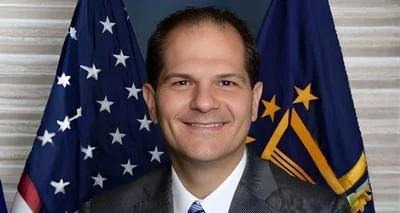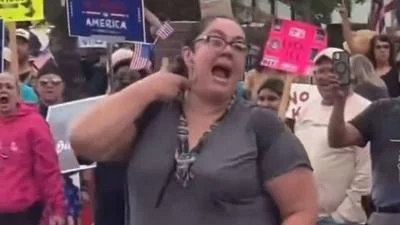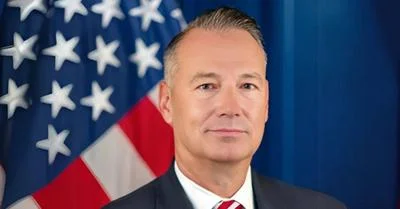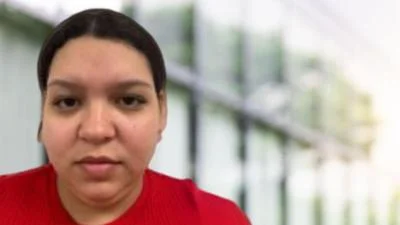U.S. Magistrate Judge Gabriel A. Fuentes | ilnd.uscourts.gov
U.S. Magistrate Judge Gabriel A. Fuentes | ilnd.uscourts.gov
Cook County State’s Attorney Kim Foxx should be required to explain in a deposition why she exonerated Jose Cruz of the 1993 murder of a 16-year-old Antwane Douglas, attorneys for police defendants argue in Cruz’s wrongful conviction case in federal court.
Defense attorneys made their arguments for why Foxx should be deposed in a motion filed on September 23 before U.S. District Magistrate Judge Gabriel Fuentes; their motion was in response to an earlier Foxx motion to quash the subpoena for her deposition.
“No other individual can provide the information Defendants seek from SA Foxx due to her unique personal knowledge of and direct involvement in the very decisions that opened the door to the instant litigation – the CCSAO’s decision to vacate Cruz’s conviction and the decision to stand aside during Cruz’s pursuit of a COI [Certificate of Innocence],” the attorneys said.
In her motion to quash, Foxx argued that she is protected by the Apex Doctrine, which sometimes protects high level officials from being subjected to a deposition. She also argued deliberative process privilege, which shields an agency’s decision making process from the public.
Both arguments fail, defense attorneys said.
“The CCSAO’s motion should be denied for several reasons,” the attorneys said. “First, the CCSAO fails to make a prima facie showing that SA Foxx’s entire deposition testimony would be protected by either the ‘apex doctrine’ or deliberative process privilege, so that her deposition subpoena should be quashed. Second, SA Foxx has relevant testimony regarding whether Cruz was exonerated and the criminal proceedings terminated in a manner indicative of innocence, an element of Cruz’s malicious prosecution claims and Defendants do not believe this information is privileged.”
They furthered argued that all available evidence, including a video of Cruz describing a conversation he had with Foxx while still in prison, indicate that Foxx made the final decision to exonerate Cruz—despite the fact that Foxx at times offered differing accounts of the meeting.
In the video posted on the CCSAO website, Cruz tells of two brief meetings with Foxx on June 15 at Stateville Correctional Center.
In the first meeting Foxx told Cruz that she was aware of his case, and in the second one she told him ‘God bless you, you’re coming home.’”
“While the parties agree that the conversation occurred, the CCSAO’s representation in their Motion of that conversation and her involvement in the underlying process is strongly contested—claiming that it was 'non-substantive' and consisted solely of SA Foxx telling Cruz she recognized his name and that his case was under investigation.”
“This is quite a difference from the CCSAO’s initial contention that SA Foxx has no recollection of the conversation whatsoever and an even further departure from a promotional video posted on the CCSAO CIU website about the significance of this very encounter with Cruz.”
Finally, Cruz’s attorney Gregory Swygert pressed the CCSAO on the conversation Cruz said that he had with Foxx while in prison. The office at first said it was unaware that such a conversation ever took place, it later confirmed that it did take place, but “could not provide the CCSAO’s official position [on the case] right away.”
“Approximately a month after Cruz’s conversation with SA Foxx, the CCSAO announced it would no longer contest Cruz’s post-conviction petition and ultimately nolle prosed [case dismissed] his indictment and Cruz was released from prison,” the motion said.






 Alerts Sign-up
Alerts Sign-up